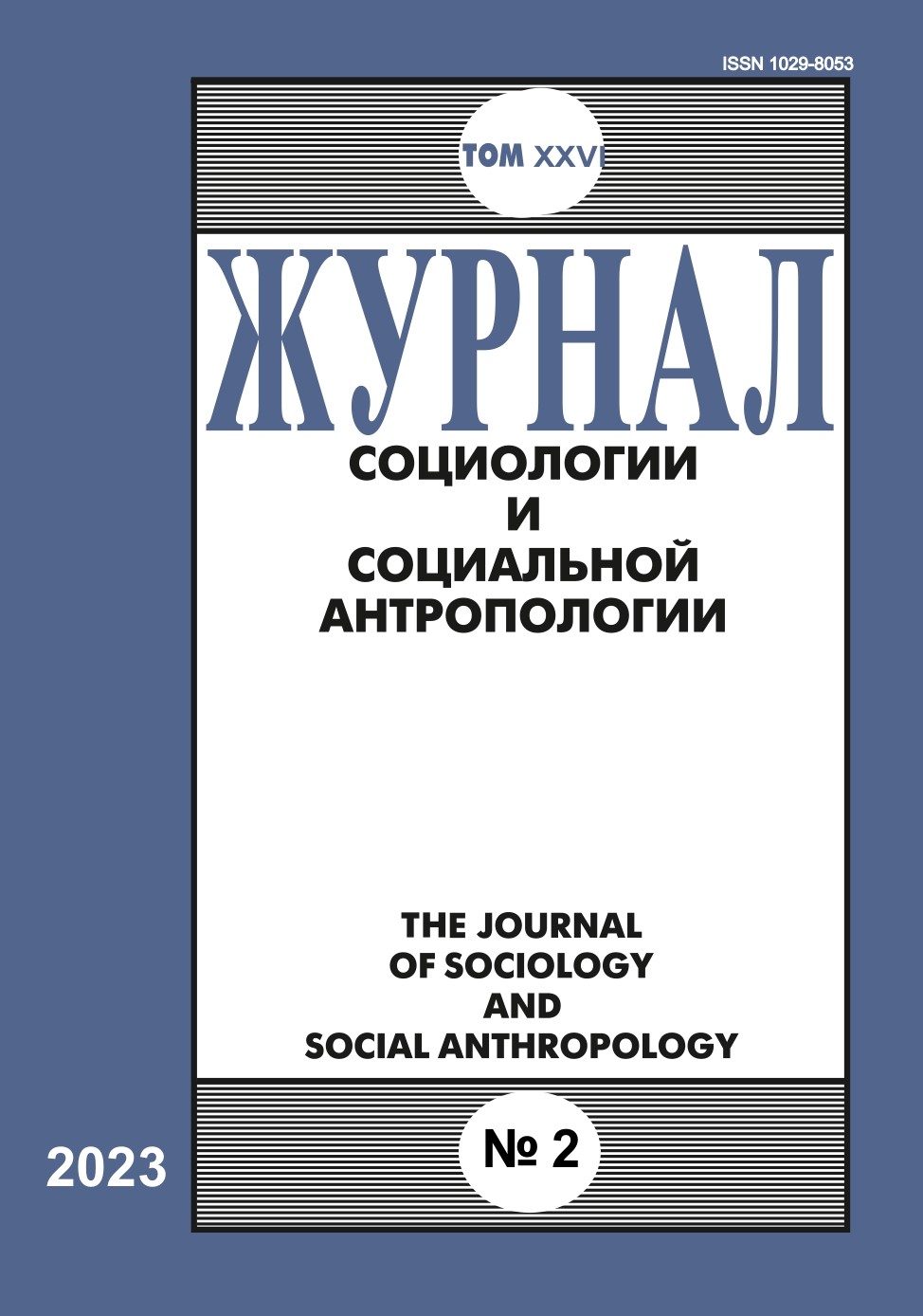Explanations and Theories of Historical Sociology: A Reconstruction of “Success Stories”
Abstract
In article the approach to integration of heterogeneous methods for historical-sociological researches is stated. Explication of such cognitive processes is required for the construction and functioning of knowledge bases in advanced intelligent systems that integrate not only the hardware, interface, expert evaluations, decision-making, but also research teams. Main ideas of classical and modern methodology of science are taken as the basis. In the study of private phenomena, along with subject-relevant methods of obtaining and processing data, abduction as “inference to the best explanation” through a systematic comparison with alternative explanations according to given criteria. The movement at high levels of abstraction includes posing general questions regarding the structural elements and main processes in the subject area under study (“question logic” according to R. Collingwood), taking into account previously grounded principles and laws in the chosen research program (I. Lakatos), constructing conceptual constructions as heuristic means of understanding and explaining (St. Toulmin). In the need for more reliable knowledge depending on the nature of the available data different methods are used, among which qualitative comparative analysis (C. Ragin et al.) and hypothetico-deductive scheme of explanation (K. Hempel) in an extended version are indicated as promising for the polar types of cognitive situations. It is shown that in two striking “success stories” — research programs to identify the causes of state origin (R. Carneiro) and the mechanisms of geopolitical dynamics, state collapses (R. Collins) — common logic and the main stages of integrative explanatory approach are found.
References
Гемпель К. (2000) Функция общих законов в истории. Время мира. Вып. 1. Историческая макросоциология в XX веке. Новосибирск: Изд-во НГУ: 6–31.
Карнейро Р.Л. (1970/2006) Теория происхождения государства. Гринин Л.Е. и др. (ред.) Раннее государство, его альтернативы и аналоги. Волгоград: Учитель: 55–70.
Клейн Л.С. (2001) Принципы археологии. СПб.: Бельведер.
Коллингвуд Р. (1980) Идея истории. Автобиография. М.: Наука.
Ладенко И.С. (1973) Интеллектуальные системы и логика. Новосибирск: Наука.
Лакатос И. (1995) Фальсификация и методология научно-исследовательских программ. М.: Медиум.
Никаноров С.П. (2009) Концептуализация предметных областей. М.: Концепт.
Розов Н.С. (2002) Философия и теория истории. Книга 1. Пролегомены. М.: Логос.
Розов Н.С. (2009) Историческая макросоциология: методология и методы. Новосибирск: Изд-во НГУ.
Розов Н.С. (2022) Происхождение языка и сознания. Как социальные порядки и коммуникативные заботы порождали когнитивные и речевые способности. Новосибирск: Манускрипт.
Campanaro D. M. (2021) Inference to the Best Explanation (IBE) and Archaeology: Old Tool, New Model. European Journal of Archaeology, 24(3): 412–432.
Carneiro R. (1988) The Circumscription Theory: Challenge and Response. American Behavioral Scientist, 31: 497–511.
Carneiro R.L. (1998) What Happened at the Flashpoint? Conjectures on Chiefdom Formation at the Very Moment of Conception.” In: Redmond E.M. (ed.) Chiefdoms and Chieftaincy in the Americas. Gainesville, FL: University Press of Florida: 18–42.
Carneiro R.L. (2012) The Circumscription Theory: A Clarification, Amplification, and Reformulation. Social Evolution and History, 11: 5–31.
Castillo O., Mellin P. (2006) Hybrid Intelligent Systems. Heidelberg: Springer-Verlag.
Chapman R., Wylie A. (2016) Evidential reasoning in archaeology. L.: Bloomsbury Academic.
Clark J. T. (2010) The Fallacy of Reconstruction. In: Forte M. (ed.) Cyber Archaeology. Oxford: British Archaeological Records (BAR), International Series, 2177: 63–73.
Collins R. (1986) Weberian sociological theory. N.Y.: Cambridge University Press.
Collins R. (1995) Prediction in Macrosociology: The Case of the Soviet Collapse. American Journal of Sociology, 5: 1552–1593.
Fogelin L. (2008) Inference to the Best Explanation: A Common and Effective Form of Archaeological Reasoning. American Antiquity, 72(4): 603–625.
Marcus J., Flannery K.V. (1996) Zapotec Civilization; How Urban Society Evolved in Mexico's Oaxaca Valley. L.: Thames & Hudson.
Ragin C. (1987) The Comparative Method: Moving Beyond Qualitative and Quantitative Strategies. Berkeley: University of California Press.
Renfrew C. (1976) Before Civilization. Harmondsworth, UK: Penguin.
Rihou B., Ragin C. (eds) (2008) Configurational Comparative Methods. L.: Sage.
Stinchcombe A. (1987) Constructing Social Theories. Chicago; L.: University of Chicago Press.
Toulmin St. (1972) Human Understanding. Oxford: Clarendon Press; Oxford University Press. .
Turchin P. et al. (2018) An Introduction to Seshat: Global History Databank. Journal of Cognitive Historiography, 5(1–2): 1–20.
Zinkina et al. (2016) Circumscription Theory of the Origins of the State: A Cross-Cultural Re-Analysis. Cliodynamics, 7(2): 187–203.

